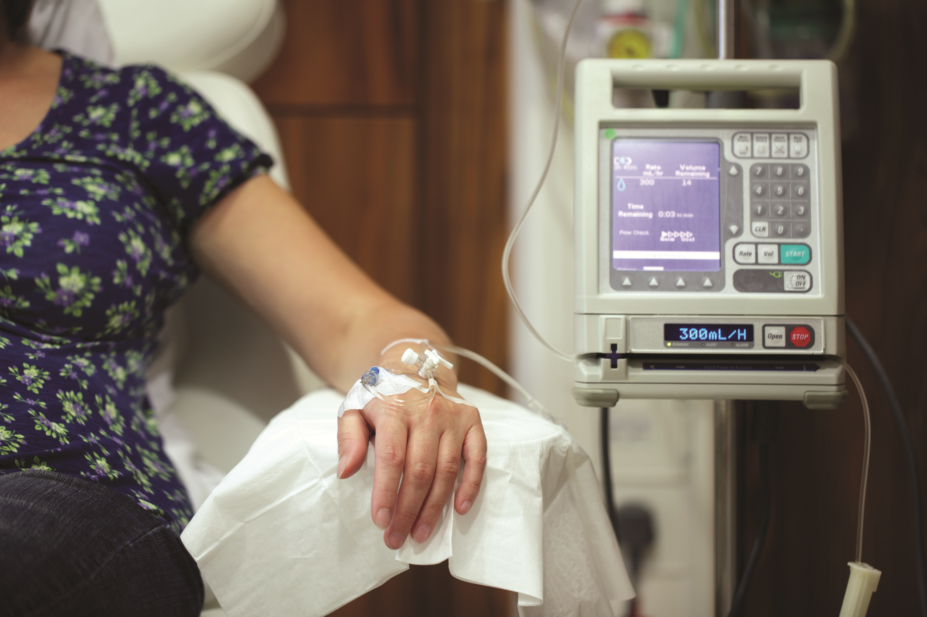
One in three newly approved cancer medicines is not associated with any overall survival benefit, according to new research. And one in five new oncology drugs neither extends life nor improves patient safety or quality of life, the analysis found.
The researchers, based at the London School of Economics and Political Science, used health technology assessments to compare the therapeutic value of all new cancer medicines approved by the US Food and Drug Administration, the body responsible for evaluating medicines in the United States, and the European Medicines Agency, which evaluates medicinal products for use in Europe, between 2003 and 2013.
Where overall survival gains could be quantified, new cancer drugs extended life by an average of 3.4 months over treatments available at the beginning of the decade, according to the analysis, published in JAMA Oncology
[1]
(online, 29 December 2016).
“These findings raise a number of important questions about value-for-money in oncology,” the researchers say.
However, they argue that the ‘modest’ survival benefit of new cancer drugs is important owing to the wider impact of reducing mortality at a population level.
The analysis showed that most newly approved cancer medicines (79%) increased overall survival by some known or unknown magnitude, or demonstrated at least some evidence of improved quality of life or safety over alternative treatments.
“In general, innovation in the oncology drug market therefore appears to be bringing real value to patients and society,” the researchers state.
They found that particular therapeutic classes were more beneficial than others — new breast cancer therapies delivered an extra 8.48 months in overall survival, whereas new drugs for thyroid cancers delivered no improvements in overall survival. And immunologic drugs were, on average, better at extending overall survival than non-immunologic drugs (5.02 vs 2.30 months).
The researchers suggest that in the short term the results may help patients and clinicians make decisions about their therapy if they have to consider the economic benefits alongside risks and benefits of treatment. In the longer term “efforts should be made to develop evidence on mechanisms to weight clinical outcome measures according to their value to patients, and to align these initiatives with the regulatory review process”, they add.
Steve Williamson, consultant cancer pharmacist at Northumbria Healthcare NHS Foundation Trust, says the paper is important as a “reality check to the continuing pressure to fund all new innovations in oncology that gain FDA and EMA approval”.
However, he adds that there is uncertainty surrounding the benefit of the drugs analysed as the benefits were shown by modelled data and indirect comparisons.
“In terms of the UK, though often criticised, the process used by the National Institute for Health and Care Excellence, including the new cancer drugs fund, remains the gold standard for ensuring that only oncology medicines that offer real benefits to patients and value for money are funded,” says Williamson, who adds that patients need to be educated about the real value of medicines: “Just because a medicine is available (i.e. FDA/EMA approved) it doesn’t mean it’s actually going to be of benefit, particularly as this paper highlighted that 53% of medicines reviewed did not improve quality of life.”
Emlyn Samuel, senior policy manager at Cancer Research UK, says: “These findings start to paint an important picture about the benefit new drugs bring to patients. In England, the systemic anti-cancer therapy [SACT] dataset is helping our understanding of the impact cancer drugs have for patients in the NHS. It’s crucial that the NHS continues to collect and analyse this data so patient care can be improved.”
References
[1] Salas-Vega S, Iliopoulos O & Mossialos E. Assessment of overall survival, quality of life, and safety benefits associated with new cancer medicines. JAMA Oncology 2016. doi: 10.1001/jamaoncol.2016.4166
You may also be interested in

LSE researchers propose more holistic method for evaluating new medicines

Pharmacy regulator considers giving up legal authority to conduct covert investigations of pharmacists
